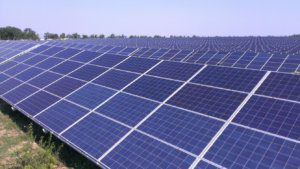
Norway’s Scatec Solar has included into its project portfolio the construction of solar power plants with a total capacity of 150 MW in Ukraine, the company’s press service reported. The company has not disclosed any other details regarding the construction of stations. As reported with reference to Cherkasy Regional Administration, Scatec Solar planned to build a solar power plant with the installed capacity of 25 MW in Kamianka, Cherkasy region. Scatec Solar has built solar power plants with a total capacity of 322 MW in different countries. The company is in the process of building plants with the capacity of 434 MW.
Scatec Solar operates in the Czech Republic, South Africa, Ruanda, Honduras and Jordan.

Ukraine’s retail trade turnover, excluding the temporarily occupied territory of Crimea, Sevastopol and Donbas, grew by 7.6% in comparable prices in January-March 2018 (Q1) year-over-year, the State Statistics Service said on Friday. In particular, retail trade turnover in March-2018 increased by 13.1% compared to February this year and by 7.6% compared to March 2017, it said.
The largest growth in retail trade turnover in January-March 2018 compared to the same period in 2017 was observed in Vinnytsia region (12.3%), Zakarpattia (11.8%), Mykolaiv (10.8%), Sumy (9. 9%), Lviv (9.7%), Chernihiv (9.6%), Cherkasy (9.4%), Odesa (9.2%), and Kherson (8%) regions.
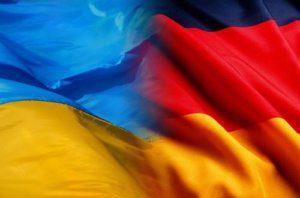
Ukraine’s Finance Minister Oleksandr Danyliuk and German Finance Minister Olaf Scholz have discussed the results of reforms in Ukraine over the past four years, the state of cooperation with the International Monetary Fund and the deepening of cooperation between Ukraine and Germany. The meeting took place on Friday, April 20, as part of the spring meetings of the IMF and the World Bank in Washington, the press service of the Ukrainian Finance Ministry reported on Saturday. “The meeting also addressed the German support in the formation of the 4th EU macro-financial assistance program and the implementation of projects of technical assistance to Ukraine by the German government,” the report reads.
“Danyliuk thanked Scholz for many years of support of Ukraine by the German government and the provision of expert and technical assistance in the implementation of reforms.
“For his part, the German finance minister assured that the Finance Ministry and the government of Germany as a whole will provide further assistance to Ukraine in implementing key reforms,” the press service said.
In addition, Danyliuk met in Washington with Latvian Finance Minister Dana Reizniece-Ozola, with whom he discussed Latvia’s experience in reforming the tax system, ways to improve efficiency and transparency of tax administration, and comprehensive reform of the State Fiscal Service (SFS).
“Oleksandr Danyliuk and Dan Reizniece-Ozola discussed the possibility of the arrival of Latvian consultants for the implementation of the SFS comprehensive reform and the establishment of the Financial Investigation Service,” the report said.
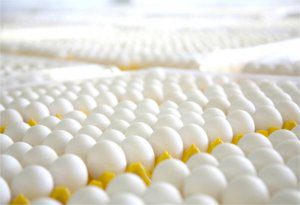
Ovostar Union, a leading shell egg and egg products producer in Ukraine, saw a 2% rise in net profit in 2017, to $22.9 million.
According to a report of Ovostar published on Friday, revenue last year grew by 27%, to $98.7 million, and gross profit – by 18%, to $30.8 million.
Earnings before interest, taxes, depreciation and amortization (EBITDA) grew by 10%, to $26.5 million.
Assets rose by 19%, to $131 million, noncurrent liabilities narrowed by 20%, to $9.8 million and current grew by 52%, to $14.3 million.
Total debt fell by 11%, to $13.6 million, and cash and cash equivalents – by 23%, to $15 million.
The shell egg segment generated 69% of total revenue, the egg products segment – 30% and oil segment – 1%. Export revenue doubled, to $47.7 million. The share of products sold in Ukraine was 52%, that in the Middle East – 30%, the EU – 15% and other countries – 3%.
In 2018, Ovostar’s export sales are expected to generate around 50% of its total revenue, provided that no external factors negatively influence the egg industry.
“In terms of operating results, we expect the share of export in total sales volume of shell eggs to remain over 40%, of dry egg products – over 70% and of liquid egg products – over 40%,” the company said.
During 2017 the company decided to put the construction of new poultry houses on hold due to the recorded cases of avian influenza in the south of Ukraine, which led to restrictions in export of shell eggs from Ukraine.
“In 2018 we aim to continue expanding the production facilities and are intended to construct two poultry houses for laying hens, two rearing houses and a fodder mill,” the company said in the report.
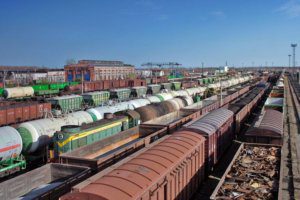
Ukrainian railway car building enterprises received orders to produce over 1,000 cars in Q1 2018 from private companies operating on the cargo transportation market.
An Interfax-Ukraine correspondent has reported that acting Ukrzaliznytsia CEO Yevhen Kravtsov gave this information at the Ukrainian Infrastructure Forum in Kyiv on Thursday.
He linked this fact with the effect of deregulation of the railway car component of the tariff conducted early this year.
“We saw the reaction of the business to the market value of transportation in the cars of Ukrzaliznytsia. Loading of Ukrainian car building enterprises and increasing the private fleet of cars is an important fact. In the first quarter, Ukrainian car building enterprises received orders for more than 1,000 cars, and this is an important indicator,” Kravtsov said.
According to him, thanks to the deregulation of the car component at the beginning of this year, the cost of transportation by Ukrzaliznytsia wagons and by private wagons has become almost the same, which will attract private capital to the railway and stimulate the investment attractiveness of the railway car fleet.
“The imbalance in the freight transportation market regarding the cost of transportation by Ukrzaliznytsia wagons and private wagons was one of the main obstacles for private investment in the construction of wagons,” Kravtsov said.
The head of the company also said that conditions have now been created under which the introduction of a market price allows to receive back investments in a freight car during the period of its service life.
“Today, with the new prices for rolling stock, the payback of investments is 7-10 years and it is covered by the operating life of the car,” he said.
Kravtsov also said that today Ukrzaliznytsia, as one of the largest operators of the car fleet, is also interested in attracting investments in the car fleet, in particular, gondola cars and grain trucks, which are the most in demand today in the transportation market. It is for this purpose that at present Ukrzaliznytsia, together with the European Bank for Reconstruction and Development (EBRD), is implementing a project to increase the car fleet of the company by approximately 7,000 wagons.
“This project has direct economic effect and [efficient] payback,” Kravtsov said.
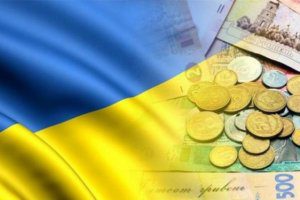
The growth of real GDP of Ukraine in the first quarter of 2018 in annual terms (quarter-over-quarter) was 2.3%, according to the assessments of the National Bank of Ukraine (NBU). The growth was thanks to the further increase in population income and retaining the favorable situation on foreign markets.
“An additional factor was the reduction in the comparison base of last year under the influence of the trade blockade of uncontrolled areas last year, the full effect from which is expected from the second quarter,” the central bank said in its inflation report released on Friday night.
At the same time, the NBU points out that the worsening of weather conditions at the end of February and in March somewhat inhibited the revival of economic activity, particularly in transport and construction.
According to the central bank, domestic demand remained the main factor of economic growth. Private consumption supported further increases in salaries and social standards, including an increase in pensions at the end of last year and a minimum wage from the beginning of 2018, as well as improving consumer expectations of households.
“The acceleration in the growth of production of machine-building products, in particular automobile and railway, was the indicator of the further growth,” the NBU said.
The central bank said that in January-February 2018, exports continued to grow, mainly thanks to the increase in the supply of some food products, wood and products made from it, as well as ferrous metals. At the same time, consumer imports were growing at a rapid pace, contributing to the change in GDP.